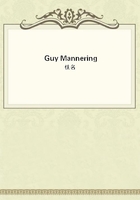
第105章
"Ay, sir, he's at hame, but he's no in the house: he's aye out on Saturday at e'en.""But, try good girl, I am a stranger, and my business express--Will you tell me where I can find him?""His honour," said the chairman, "will be at Clerihugh's about this time--Hersell could hae tell'd ye that, but she thought ye wanted to see his house.""Well, then, show me to this tavern--I suppose he will see me, as Icome on business of some consequence?""I dinna ken, sir," said the girl; "he disna like to be disturbed on Saturdays wi' business--but he's aye civil to strangers.""I'll gang to the tavern too," said our friend Dinmont, "for I am a stranger also, and on business e'en sic like.""Na," said the handmaiden, "an he see the gentleman, he'll see the simple body too--but, Lord's sake, dinna say it was me sent ye there!""Atweel, I am a simple body, that's true, hinny, but I am no come to steal ony o' his skeel for naething," said the farmer in his honest pride, and strutted away downstairs, followed by Mannering and the cadie. Mannering could not help admiring the determined stride with which the stranger who preceded them divided the press, shouldering from him, by the mere weight and impetus of his motion, both drunk and sober passengers. "He'll be a Teviotdale tup tat ane," said the chairman, "tat's for keeping ta crown o' ta causeway tat gate--he'll no gang far or he'll get somebody to bell ta cat wi' him."His shrewd augury, however, was not fulfilled. Those who recoiled from the colossal weight of Dinmont, on looking up at his size and strength, apparently judged him too heavy metal to be rashly encountered, and suffered him to pursue his course unchallenged.
Following in the wake of this first-rate, Mannering proceeded till the farmer made a pause, and, looking back to the chairman, said, "I'm thinking this will be the close, friend?""Ay, ay," replied Donald, "tat's ta close."Dinmont descended confidently, then turned into a dark alley--then up a dark stair--and then into an open door. While he was whistling shrilly for the waiter, as if he had been one of his collie dogs, Mannering looked round him, and could hardly conceive how a gentleman of a liberal profession, and good society, should choose such a scene for social indulgence. Besides the miserable entrance, the house itself seemed paltry and half ruinous. The passage in which they stood had a window to the close, which admitted a little light during the daytime, and a villainous compound of smells at all times, but more especially towards evening. Corresponding to this window was a borrowed light on the other side of the passage, looking into the kitchen, which had no direct communication with the free air, but received in the daytime, at second hand, such straggling and obscure light as found its way from the lane through the window opposite. At present, the interior of the kitchen was visible by its own huge fires--a sort of Pandemonium, where men and women, half undressed, were busied in baking, broiling, roasting oysters, and preparing devils on the gridiron; the mistress of the place, with her shoes slipshod, and her hair straggling like that of Megaera from under a round-eared cap, toiling, scolding, receiving orders, giving them, and obeying them all at once, seemed the presiding enchantress of that gloomy and fiery region.
Loud and repeated bursts of laughter, from different quarters of the house, proved that her labours were acceptable, and not unrewarded by a generous public. With some difficulty a waiter was prevailed upon to show Colonel Mannering and Dinmont the room where their friend, learned in the law, held his hebdomadal carousals.
The scene which it exhibited, and particularly the attitude of the counsellor himself, the principal figure therein, struck his two clients with amazement.
Mr. Pleydell was a lively, sharp-looking gentleman, with a professional shrewdness in his eye, and, generally speaking, a professional formality in his manners. But this, like his three-tailed wig and black coat, he could slip off on a Saturday evening, when surrounded by a party of jolly companions, and disposed for what he called his altitudes. On the present occasion, the revel had lasted since four o'clock, and, at length, under the direction of a venerable compotater, who had shared the sports and festivity of three generations, the frolicsome company had begun to practise the ancient and now forgotten pastime of High-jinks. This game was played in several different ways. Most frequently the dice were thrown by the company, and those upon whom the lot fell were obliged to assume and maintain, for a time, a certain fictitious character, or to repeat a certain number of fescennine verses in a particular order. If they departed from the characters assigned, or if their memory proved treacherous in the repetition, they incurred forfeits, which were either compounded for by swallowing an additional bumper, or by paying a small sum towards the reckoning. At this sport the jovial company were closely engaged, when Mannering entered the room.
Mr. Counsellor Pleydell, such as we have described him, was enthroned as a monarch, in an elbow-chair, placed, on the dining-table, his scratch wig on one side, his head crowned with a bottle-slider, his eye leering with an expression betwixt fun and the effects of wine, while his court around him resounded with such crambo scraps of verse as these .
Where is Gerunto now? and what's become of him?
Gerunto's drowned because he could not swim, etc. etc.
Such, O Themis, were anciently the sports of thy Scottish children!